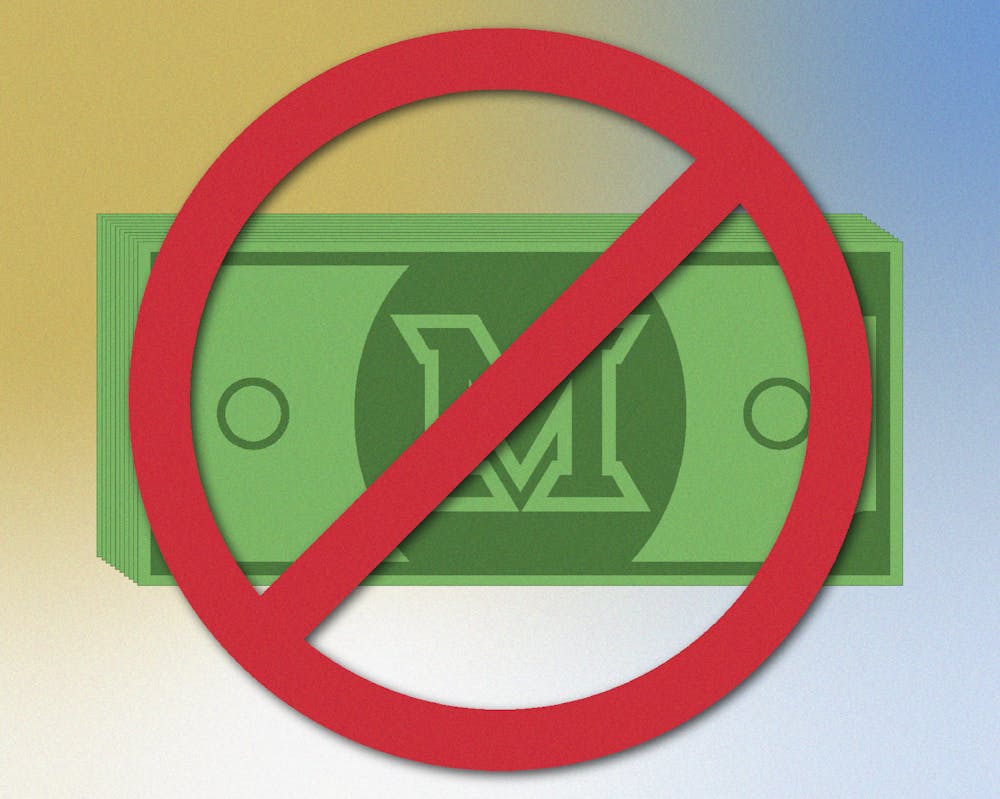Miami University became a cashless campus this summer in an attempt to prevent the spread of COVID-19.
Geno Svec, executive director of campus services and chief hospitality officer, wrote in an email to The Miami Student that the university made the decision to eliminate the sharing of items like bills and coins that are easily spread and difficult to clean.
According to the Campus Services Center’s website, the move to a cashless campus began on July 1. Students must now use other methods of payment on campus including their Miami ID, credit cards, debit cards and virtual wallets.
David Lindequist, an assistant professor of economics, said the use of a student ID payment method helps make Miami’s decision to go cashless possible.
“We are a university with a university infrastructure,” Lindequist said. “Every student should have a Miami ID card. I know that many students already do lots of things with the Miami ID card and the associated systems.”
For students who may not have cashless payment options, Miami is providing an alternative. Svec said students will be able to exchange cash for a reloadable payment card inside the Conference and Event Services suite at the Shriver Center.
Lindequist explained that going cashless could create a cost reduction for the university by eliminating the need to handle, count and transport cash. Svec said the decision is permanent and was made for safety concerns, and he believes it has been well received.
Sophomore Hank Lazzaro said although he understands the reasoning behind the decision, he is opposed to its permanence.
“I'm just not a fan long term mainly because I know a lot of people just have cash on hand, and it kind of sucks you can't spend it,” Lazzaro said. “It's a little bit frustrating.”
In addition, Lazzaro said he found out about Miami’s decision to go cashless through a student’s social media post and not from the university.
He said that he thinks it would be beneficial if the university made more of an effort to make the transition known.
“I do think that when it comes to monetary policy – especially since we're, like, in the middle of the pandemic and everyone's in a different economic situation – stuff like that would be at the forefront,” Lazzaro said.
Enjoy what you're reading?
Signup for our newsletter
First-year Nolan Wilson said that although he is currently unaffected by the decision due to the fact that he’s not on campus, he doesn't see it being a large problem.
“I pay with my card most of the time,” Wilson said. “It could be a little inconvenient, but I doubt it would affect me a lot.”
Lindequist said that legally, Miami can do as it pleases with its payment policy, but it’s going to be up to the students to determine the outcome of a cashless campus.
“I think the benefits outweigh the costs slightly,” Lindequist said. “But to ultimately judge if this is a good or bad thing, I think students will have to decide.”




